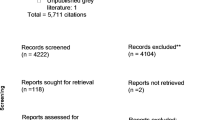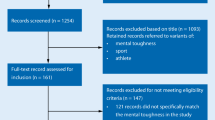Abstract
This study examined the importance of legacy outcomes for residents’ quality of life (QoL) across three international sport events in Taiwan. A survey of the three events was conducted among the host city residents (n = 605). Questionnaires measured eight legacy outcome factors for each of the three events. One-sample t-tests and one-way MANOVA tested the importance of these outcomes for residents’ QoL and the differences between various legacy categories across events. Results revealed that tangible legacies were the most important category of legacies affecting QoL. Specifically, infrastructure, environment, and culture were the most important in all three events. Legacies held different weight for residents’ QoL according to the event type; sport development and emotional legacies were expected to influence the QoL resulting from hosting the future sport event in 2017. The evaluation of infrastructural and environmental legacies changed in terms of when the event took place (past or future). Future events elicited positive evaluations for the residents’ QoL across all legacy categories. Implications relate to variability of event type legacies and their importance for residents’ QoL.

Similar content being viewed by others
References
Agha, N., Fairley, S., & Gibson, H. (2012). Considering legacy as a multi-dimensional construct: the legacy of the Olympic Games. Sport Management Review, 15(1), 125–139.
Andereck, K. L., & Vogt, C. A. (2000). The relationship between residents’ attitudes toward tourism and tourism development options. Journal of Travel Research, 39(1), 27–36.
Andereck, K. L., Valentine, K., Vogt, C., & Knopf, R. (2007). A cross-cultural analysis of tourism and quality of life perceptions. Journal of Sustainable Tourism, 15(5), 483–500.
Bagozzi, R. P., & Yi, Y. (1988). On the evaluation of structural equation models. Journal of the Academy of Marketing Science, 16(1), 74–94.
Bettman, J. R., Luce, M. F., & Payne, J. W. (1998). Constructive consumer choice processes. Journal of Consumer Research, 25(3), 187–217.
Bohlmann, H. R. (2006). Predicting the economic impact of the 2010 FIFA World Cup on South Africa. Working paper, University of Pretoria.
Brajša-Žganec, A., Merkaš, M., & Šverko, I. (2011). Quality of life and leisure activities: how do leisure activities contribute to subjective well-being? Social Indicators Research, 102(1), 81–91.
Brislin, R. W. (1970). Back-translation for cross cultural research. Journal of Cross-Cultural Psychology, 1(3), 185–216.
Burgan, B., & Mules, T. (1992). Economic impact of sporting events. Annals of Tourism Research, 19, 700–710.
Cashman, R. (2006). The bitter-sweet awakening: the legacy of the Sydney 2000 Olympic Games. Sydney: Walla Walla Press.
Chappelet, J., & Junod, T. (2006). A tale of 3 Olympic cities: What can Turin learn from the Olympic legacy of other alpine cities? In: D. Torres (Ed.), Proceedings of workshop on Major Sport Events as Opportunity for Development (pp. 83–89), 14–16 June, Valencia, Spain.
Cornelissen, S., Bob, U., & Swart, K. (2011). Towards redefining the concept of legacy in relation to sport mega-events: insights from the 2010 FIFA World Cup. Development Southern Africa, 28(3), 307–318.
Deccio, C., & Baloglu, S. (2002). Nonhost community resident reactions to the 2002 Winter Olympics: the spillover impacts. Journal of Travel Research, 41(1), 46–56.
Desbordes, M. (2007). A review of the economic impact studies done on the Tour de France: methodological aspects and first results. International Journal of Sport Management and Marketing, 2, 526–540.
Executive Yuan, Taiwan. (n.d.). 2017 Taipei Summer Universiade organising proposal. Retrieved from http://www.ey.gov.tw/Upload/RelFile/27/704784/09ba542c-83ae-477c-ae1f-5eb574a97800.pdf
Fornell, C., & Larcker, D. F. (1981). Evaluating structural equation models with unobservable variables and measurement error. Journal of Marketing Research, 18(1), 39–50.
Gratton, C., & Preuss, H. (2008). Maximizing Olympic impacts by building up legacies. The International Journal of the History of Sport, 25(14), 1922–1938.
Gratton, C., Shibli, S., & Coleman, R. (2005). Sport and economic regeneration in cities. Urban Studies, 42(5/6), 1–15.
Guala, C., & Turco, D. M. (2009). Resident perceptions of the 2006 Torino Olympic Games, 2002–2007. Choregia: Sport Management International Journal, 5(2), 21–42.
Hiller, H. H. (2006). Post-event outcomes and the post-modern turn: the Olympics and urban transformations. European Sport Management Quarterly, 6(4), 317–332.
Hofstede, G. (2001). Culture’s consequences: comparing values, behaviors, institutions, and organizations across nations (2nd ed.). London: Sage Publications.
Jöreskog, K. G., & Sörbom, D. (1992). LISREL: a guide to the program and applications (3rd ed.). Chicago: Scientific Software International Inc.
Kaplan, D. W. (2009). Structural equation modelling: foundations and extensions (2nd ed.). Newbury Park, CA: SAGE Publications.
Kaplanidou, K. (2009). Relationships among behavioural intentions, cognitive event and destination images among different geographic regions of Olympic Games spectators. Journal of Sport & Tourism, 14(4), 249–272.
Kaplanidou, K. (2010). Examining the importance of Olympic Games legacy aspects among host city residents: a temporal approach. Lausanne, Switzerland: IOC Olympic Studies Centre.
Kaplanidou, K. (2012). The importance of legacy outcomes for Olympic Games four summer host cities residents’ quality of life: 1996–2008. European Sport Management Quarterly, 12(4), 397–433.
Kaplanidou, K., & Karadakis, K. (2010). Understanding the legacies of a host Olympic city: the case of the 2010 Vancouver Olympic Games. Sport Marketing Quarterly, 19(2), 110–117.
Kaplanidou, K., Karadakis, K., Gibson, H., Thapa, B., Walker, M., Geldenhuys, S., & Coetzee, W. (2013). Quality of life, event impacts, and mega-event support among South African residents before and after the 2010 FIFA World Cup. Journal of Travel Research, 52(5), 631–645.
Karadakis, K., & Kaplanidou, K. (2012). Legacy perceptions among host and non-host Olympic Games residents: a longitudinal study of the 2010 Vancouver Olympic Games. European Sport Management Quarterly, 12(3), 243–264.
Kemp, S. (2002). The hidden workforce. Journal of European Industrial Training, 26, 109–116.
Kim, S. S., & Petrick, J. F. (2005). Residents’ perceptions on impacts of the FIFA 2002 World Cup: the case of Seoul as a host city. Tourism Management, 26(1), 25–38.
Kim, H. J., Gursoy, D., & Lee, S. B. (2006). The impact of the 2002 World Cup on South Korea: comparisons of pre- and post-games. Tourism Management, 27(1), 86–96.
Lankford, S. V., & Howard, D. R. (1994). Developing a tourism impact attitude scale. Annals of Tourism Research, 21(1), 121–139.
Lee, C. C., & Ma, S. C. (2014). The study on sustainability evaluation of sports mega-events. Sport Management Quarterly, 25, 3–16.
Leopkey, B. (2009). 2008 post graduate grant final report: the historical evolution of Olympic legacy. Lausanne: International Olympic Committee.
Leopkey, B., & Parent, M. M. (2012). Olympic Games legacy: from general benefits to sustainable long-term legacy. The international Journal of the History of Sport, 29(6), 924–943.
Liao, Y. C. (2013). A study of sustainable indicators for sports mega-events in Taiwan (Unpublished master’s thesis). National Cheng Kung University, Taiwan.
Liu, D., Broom, D., & Wilson, R. (2014). Legacy of the Beijing Olympic Games: a non-host city perspective. European Sport Management Quarterly, 14(5), 485–502.
Ma, S. C., & Kaplanidou, K. (2016). Legacy perceptions among host Tour de Taiwan residents: the mediating effect of quality of life. Leisure Studies. doi:10.1080/02614367.2015.1128475.
Ma, S. C., Egan, D., Rotherham, I., & Ma, S. M. (2011). A framework for monitoring during the planning stage for a sports mega-event. Journal of Sustainable Tourism, 19(1), 79–96.
Ma, S. C., Ma, S. M., & Rotherham, D. I. (2012). Host residents’ perceptions of the impact of the 2009 World Games on Kaohsiung: a longitudinal perspective. South African Journal for Research in Sport, Physical Education and Recreation, 34(2), 115–135.
Mihalik, B. J., & Simonetta, L. (1999). A midterm assessment of the host population’s perceptions of the 1996 Summer Olympic Games: support, attendance, benefits, and liabilities. Journal of Travel Research, 37(3), 244–248.
Misener, L., Taks, M., Chalip, L., & Green, B. C. (2015). The elusive ‘trickle down effect’ of sport events: assumptions and missed opportunities. Managing Sport and Leisure, 20(2), 135–156.
Nobili, V. (2005). The role of European capital of culture events within Genoa’s and Liverpool’s branding and positioning efforts. Place Branding, 1(3), 316–328.
Olympic Studies Centre, I. O. C. (2003). The legacy of the Olympic Games: 1984–2000: conclusions and recommendations. Lausanne: International Olympic Committee.
Peterson, R. (1994). A meta-analyses of Cronbach’s coefficient alpha. Journal of Consumer Research, 21(2), 381–391.
Porter, P. K. (1999). Mega-sports events as municipal investments: a critique of impact analysis. In J. Fizel, E. Gustafson, & L. Hadley (Eds.), Sports economics: current research. Westport, CT: Praeger Press.
Preuss, H. (2004). The economics of staging the Olympics: a comparison of the Games 1972–2008. Cheltenham: Edward Elga.
Preuss, H. (2007). The conceptualization and measurement of mega sport event legacies. Journal of Sport & Tourism, 12, 207–228.
Preuss, H. (2014). ‘Legacy’ revisited. In G. Jonathan (Ed.), Leveraging legacies from sports mega-events: Concepts and cases (pp. 24–38). Basingstoke: Palgrave.
Preuss, H. (2015). A framework for identifying the legacies of a mega sport event. Leisure Studies, 34(6), 643–664.
Preuss, H., & Solberg, H. A. (2006). Attracting major sporting events: the role of local residents. European Sport Management Quarterly, 6(4), 391–411.
Richards, G., & Palmer, R. (2010). Eventful cities: cultural management and urban revitalization. Amsterdam: Butterworth- Heinemann.
Ritchie, J. R. B. (2000). Turning 16 days in 16 years through Olympic legacies. Event Management, 6, 155–165.
Roche, M. (1994). Mega-events and urban policy. Annals of Tourism Research, 21(1), 1–19.
Schacter, D. L., Addis, D. R., & Buckner, R. L. (2008). Episodic simulation of future events. Annals of the New York Academy of Sciences, 1124(1), 39–60.
Shipway, R. (2007). Sustainable legacies for the 2012 Olympic Games. Journal of the Royal Society for the Promotion of Health, 127(3), 119–124.
Tabachnick, B. G., & Fidell, L. S. (2007). Using multivariate statistics. Boston: Pearson/Allyn & Bacon.
Taipei City Government (2012). Universiade Taipei 2017. Retrieved from http://taipei2017.net/.
Taipei City Government (2013). Venues. Retrieved from http://www.taipei2017.com.tw/files/11-1000-86.php.
Taipei City Government (2014). How much does it cost to host the 2017 Universiade? Retrieved from http://www.tms.taipei.gov.tw/ct.asp?xitem=40552658&CtNode=34659&mp=104061
Taipei Organising Committee of the 21st Summer Deaflympics (2009). Curtain Drops on the 2009 Taipei Deaflympics. Retrieved from http://en-mediazone.2009deaflympics.org/files/15-1053-6171,c659-1.php
Taks, M., Misener, L., Chalip, L., & Green, B. C. (2013). Leveraging sport events for participation. Canadian Journal for Social Research, 3, 12–23.
Taks, M., Green, B. C., Misener, L., & Chalip, L. (2014). Evaluating sport development outcomes: the case of a medium-sized international sport event. European Sport Management Quarterly, 14(3), 213–237.
Taks, M., Chalip, L., & Green, B. C. (2015). Impacts and strategic outcomes from non-mega sport events for local communities. European Sport Management Quarterly, 15(1), 1–6.
Toohey, K., & Veal, A. J. (2007). The Olympic Games: a social science perspective (2nd ed.). Cambridge, MA: CABI.
Trope, Y., & Liberman, N. (2003). Temporal construal. Psychological Review, 110(3), 403–421.
Tsaur, S. H., Yen, C. H., Tu, J. H., Wang, C. H., & Liang, Y. W. (2015). Evaluation of the 2010 Taipei International Flora Exposition from the perceptions of host-city residents: a new framework for mega-event legacies measurement. Leisure Studies. doi:10.1080/02614367.2015.1037786.
Vigor, A., Mean, M., & Tims, C. (2004). After the gold rush. London: Ippr-Demos.
Weed, M., Coren, E., Fiore, J., Wellard, I., Chatziefstathiou, D., Mansfield, L., & Dowse, S. (2015). The Olympic Games and raising sport participation: a systematic review of evidence and an interrogation of policy for a demonstration effect. European Sport Management Quarterly, 5(2), 195–226.
Zhou, Y., & Ap, J. (2009). Residents’ perceptions towards the impacts of the Beijing 2008 Olympic Games. Journal of Travel Research, 48(1), 79–91.
Acknowledgments
The authors gratefully acknowledge the research grant received from the Ministry of Science and Technology, Taiwan, for this project (NSC 102-2410-H-006-116).
Author information
Authors and Affiliations
Corresponding author
Ethics declarations
Conflict of Interest
The authors declare that they have no conflict of interest.
Rights and permissions
About this article
Cite this article
Ma, S.C., Kaplanidou, K.(. Examining the Importance of Legacy Outcomes of Major Sport Events for Host City Residents’ Quality of Life. Applied Research Quality Life 12, 903–923 (2017). https://doi.org/10.1007/s11482-016-9496-1
Received:
Accepted:
Published:
Issue Date:
DOI: https://doi.org/10.1007/s11482-016-9496-1




